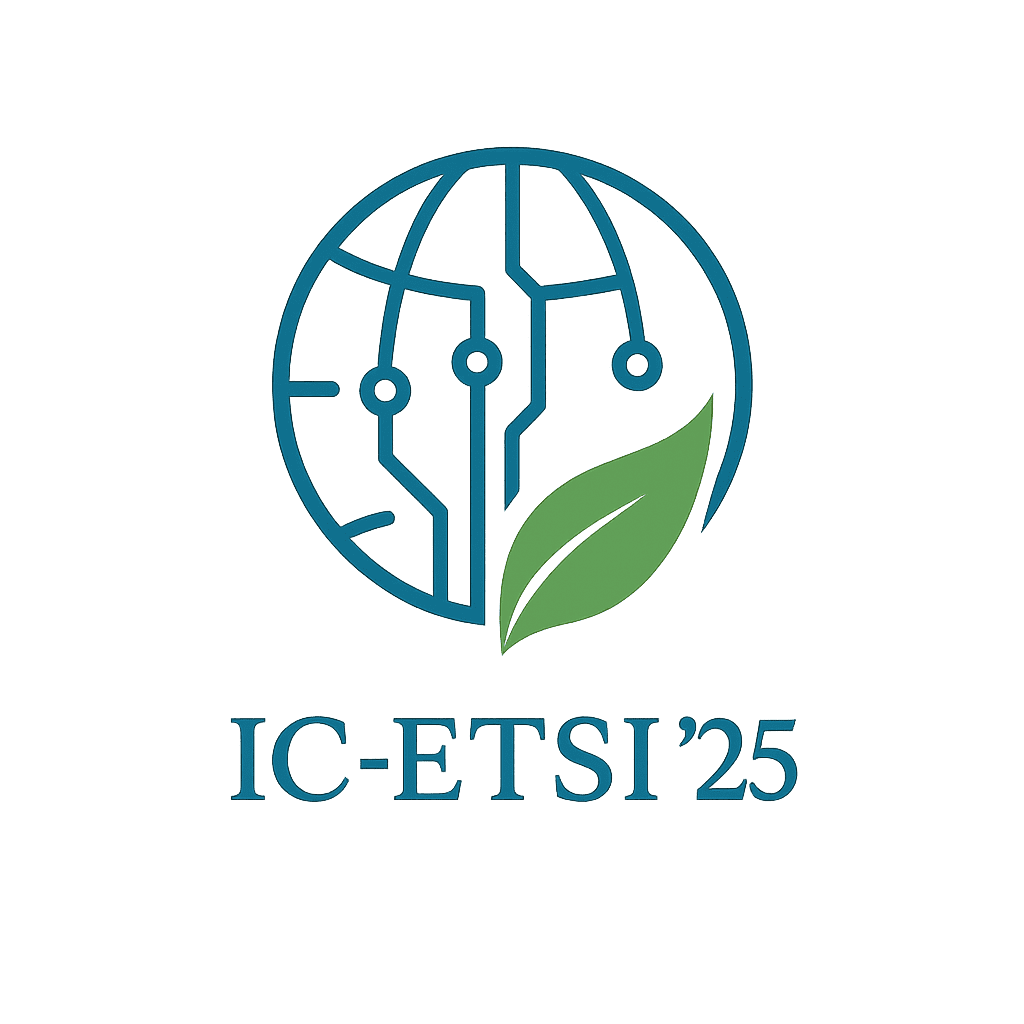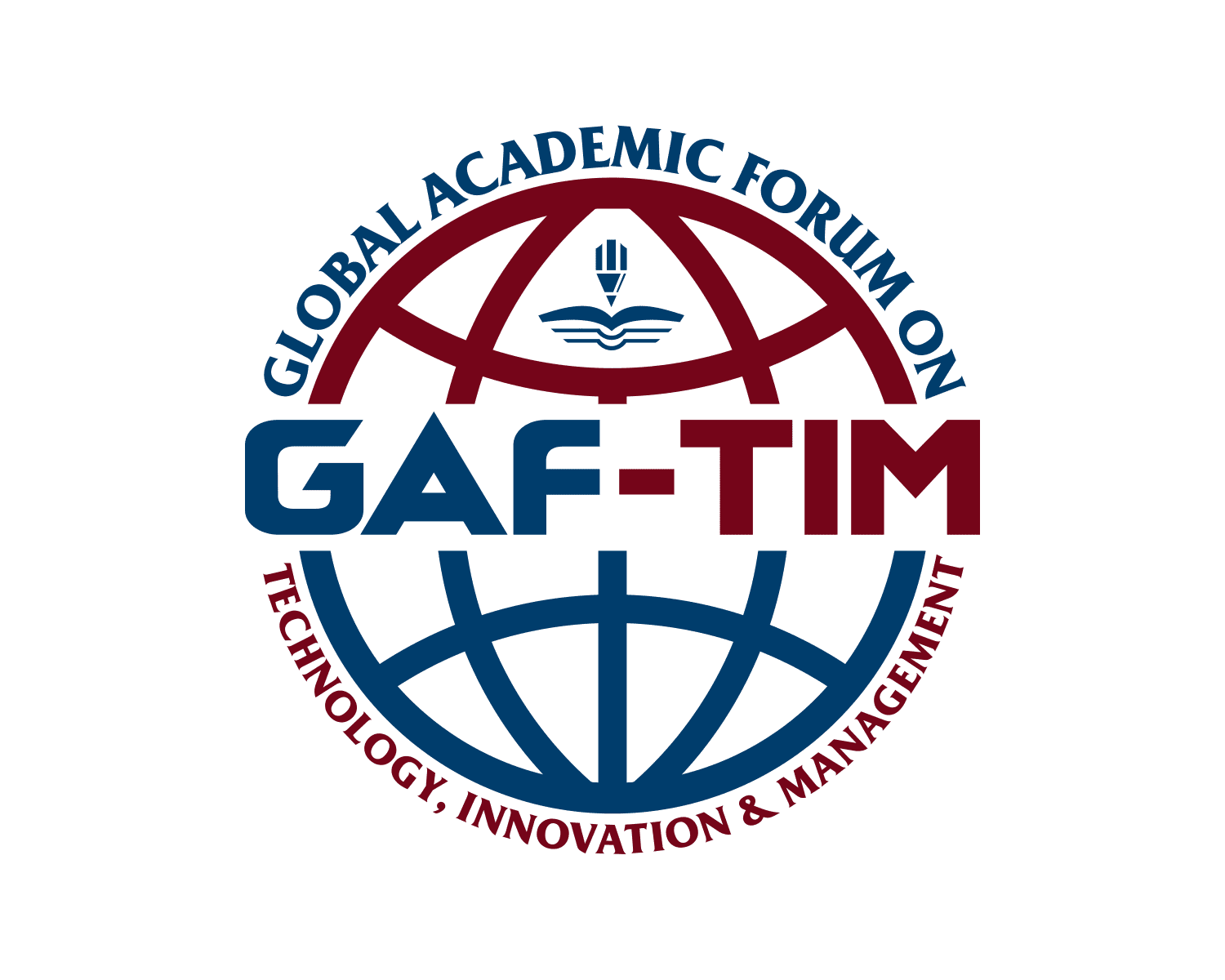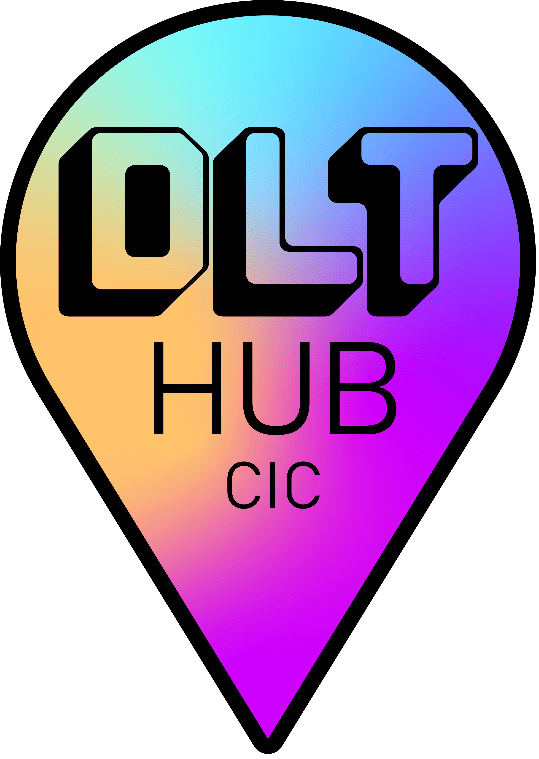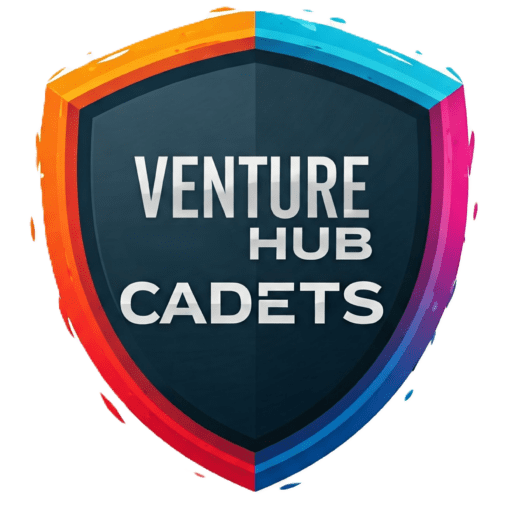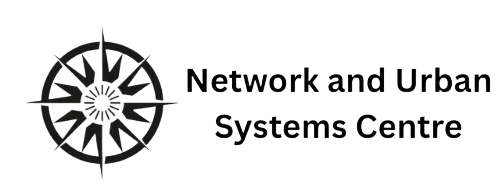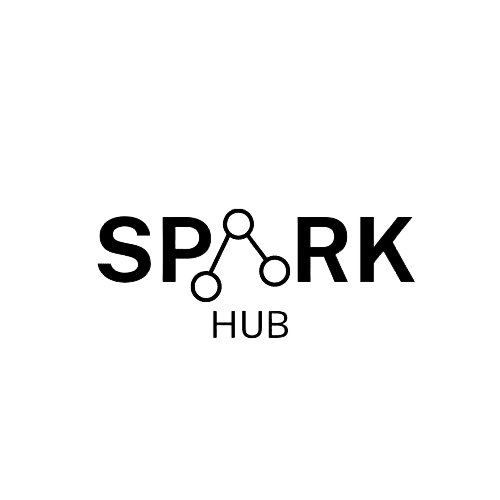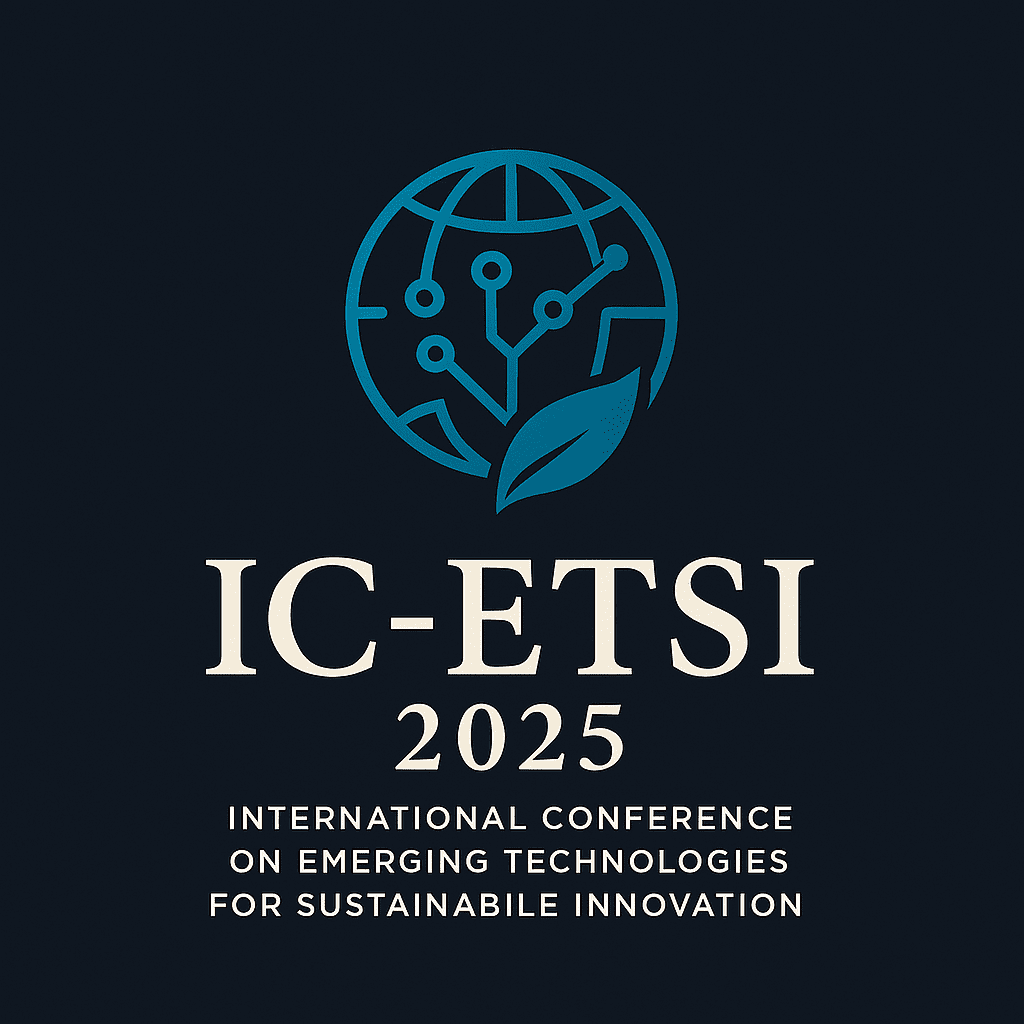IC-ETSI
16th - 20th June 2025 University of Greenwich
International Conference on Emerging Technologies for Sustainable Innovation
Where academia meets industry and policy community to shape the future of digital transformation
About IC-ETSI 2025
IC-ETSI 2025 brings together academia, industry, and policymakers to explore how emerging technologies reshape digital transformation and sustainable innovation. The conference aims to foster an interdisciplinary dialogue, addressing the complexities of technological adoption and its impact on organisational change, human behaviour, and societal transformation.
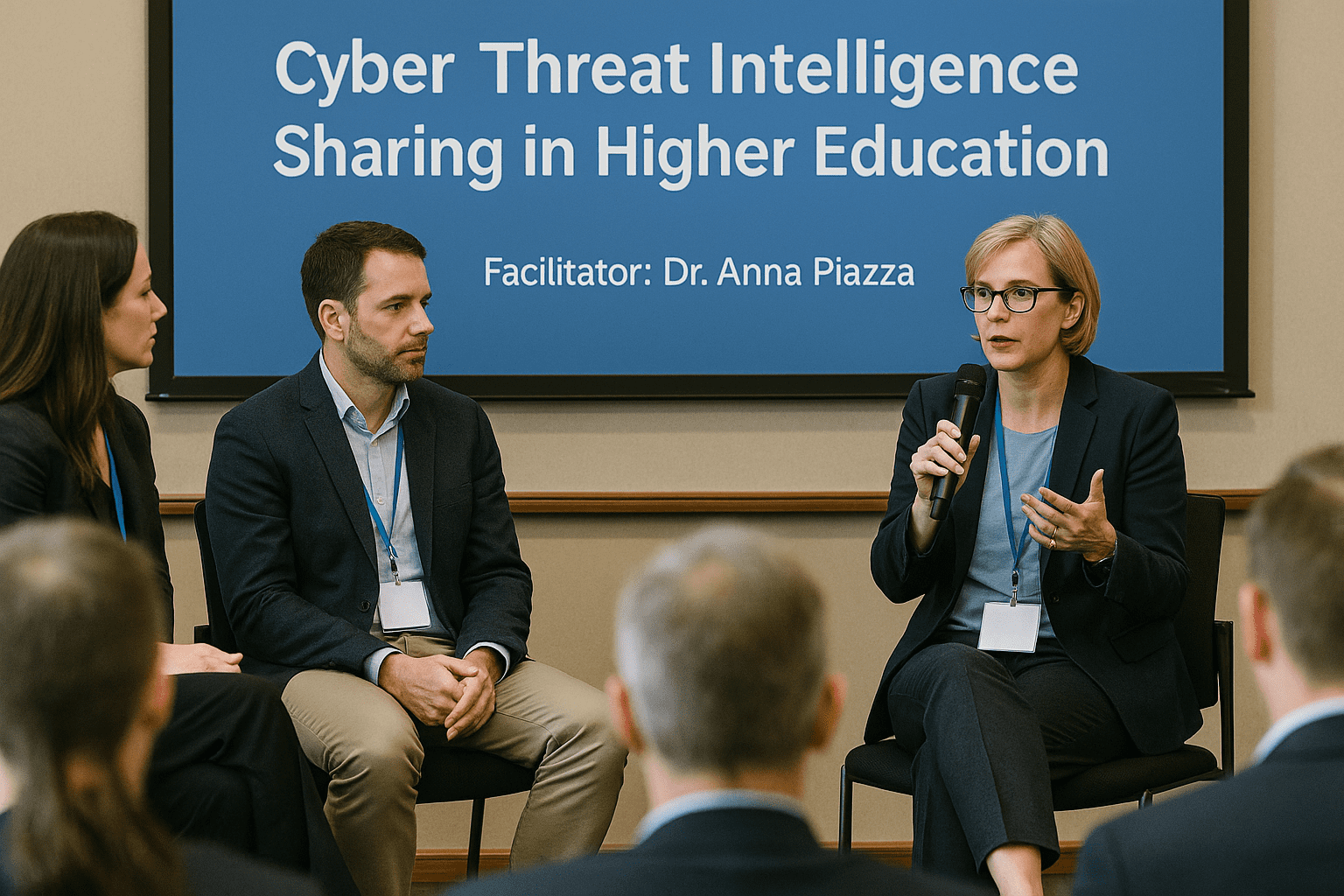
Academia
Advance Your Research. Join leading academic minds at IC-ETSI 2025 to delve into the forefront of digital transformation and sustainable innovation. Engage in interdisciplinary dialogues, explore the complexities of emerging technology adoption, and contribute to understanding its impact on organisations, human behaviour, and society.
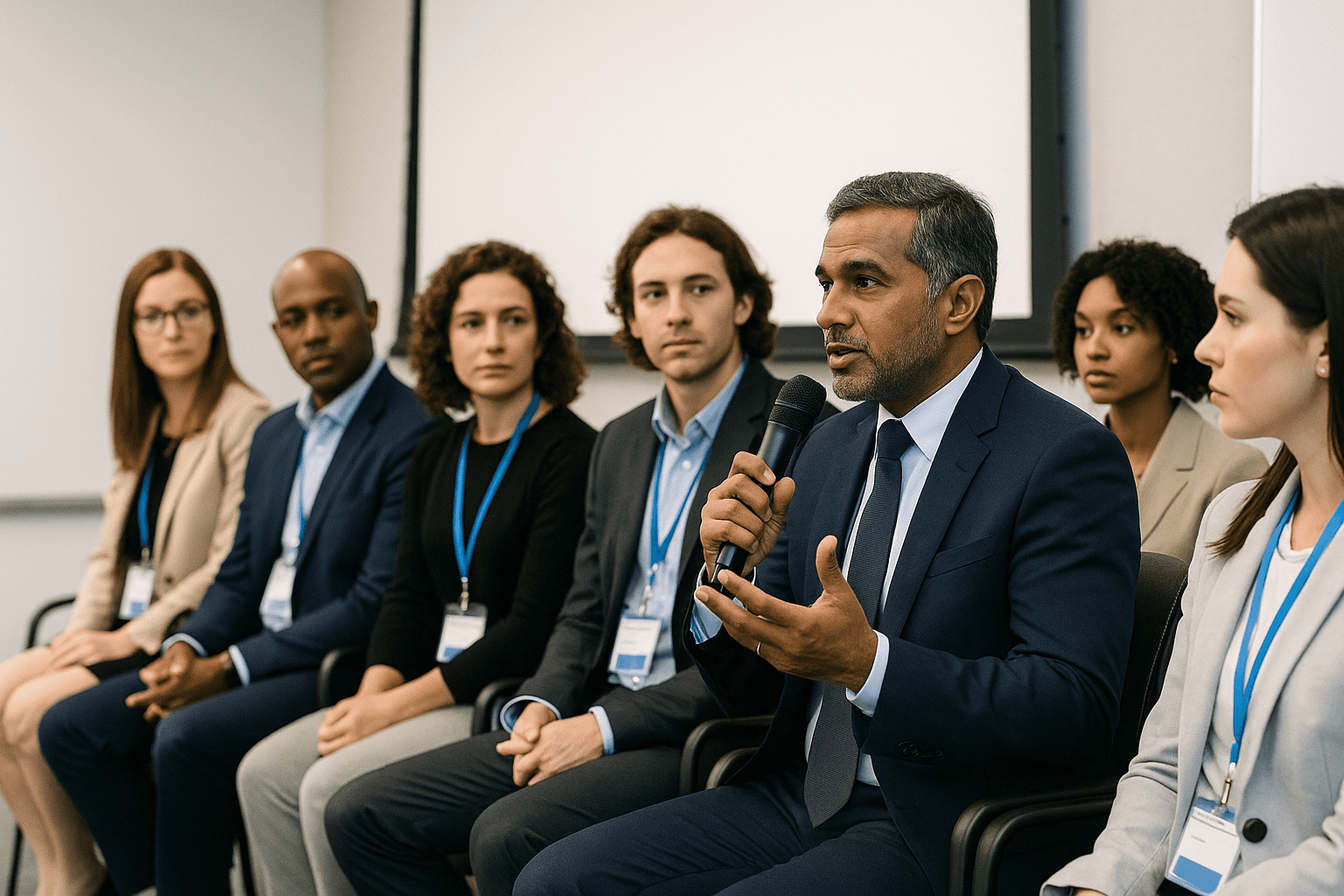
Industry and policymakers
Shape the Future of Innovation. Connect with industry leaders and policymakers at IC-ETSI 2025 to explore how emerging technologies are driving digital transformation and sustainable innovation. Gain insights into the challenges and opportunities of technological adoption and its profound impact on organisational change and societal transformation.
Bringing together the most forward thinking innovators
From academics to industry, students, entrepreneurs, CEOs and policymakers – all of our attendees are looking to stay on top of the latest trends
Keynote
Presentation Topic:
Remaining globally competitive: The role of universities in technology and innovation
Panellists
We are proud to present a distinguished group of experts who bring diverse perspectives and deep expertise to our discussions.
Each panellist has been carefully selected for their leadership, innovative thinking, and commitment to advancing the themes of IC-ETSI 2025.
Their insights will illuminate key challenges and opportunities across emerging technologies, sustainability, digital transformation, and more.

Sarah Lawson
Director of Cybersecurity, Risk and Resilience (CISO) - Oxford University Press

Prof. Riccardo De Vita
Professor in Innovation Management, Manchester Metropolitan University
Conference Chairs
Organising Committee
Microsoft CMT Submission
Please submit your paper using the following Microsoft CMT Submission link:
Selected papers will be published by Springer ASTI Series (Scopus Indexed)
Conference Tracks
Explore the diverse and innovative topics at IC‑ETSI 2025. From Cybersecurity to Sustainable Urban Networks, our sessions are designed to spark dialogue and drive actionable insights across key areas of digital transformation.
Cybersecurity: Resilience, Governance, and Human-Centric Approaches
Cybersecurity is no longer just about technical defences, it is an organisational challenge affecting industries such as finance, energy, healthcare, transport, logistics, higher education, and public sector governance. As digital threats evolve, organisations must implement risk-aware governance structures, proactive security frameworks, and human-centric security models to maintain resilience. This track explores cyber risk perception, regulatory compliance, intelligence-sharing frameworks, and security methodologies across industries. Discussions will focus on how organisations navigate cyber resilience, institutional security policies, social cybersecurity, and emerging cyber technologies to mitigate risk, improve security outcomes, and build trust.
- Cyber resilience strategies across industries, including finance, healthcare, education, logistics, and energy
- Trust-based cybersecurity intelligence sharing and collaborative defence models within organisations
- Behavioural cybersecurity risk perception and decision-making in organisational security policies
- AI-driven cybersecurity threat detection and predictive risk assessment models
- Blockchain for cybersecurity – decentralised security models for data integrity and fraud prevention
- Social cybersecurity methodologies for tracking digital risk patterns in organisations
- Cybersecurity governance frameworks for businesses, government institutions, and higher education
- Regulatory compliance, ethics, and governance in cybersecurity policy development
- Network security models for protecting organisational data systems in various industries
- Gamification and immersive learning techniques in cybersecurity education, leveraging interactive methods to enhance retention
- Social engineering awareness and behavioural countermeasures, developing proactive defences against manipulation tactics
- Cyber hygiene and workforce security culture, bridging technical protocols with practical behavioural improvements
Web3/Blockchain & Emerging Tech: Policy, Governance, and Adoption
Emerging technologies such as Web3, blockchain, and decentralised networks present new challenges and opportunities for organisations seeking trust, transparency, and efficiency. This track investigates how these technologies support financial transactions, supply chain security, decentralised identity solutions, and digital governance in industries such as finance, logistics, public administration, healthcare, and higher education. As immersive technologies evolve, industries are exploring their impact on workforce behaviour, business structures, financial strategies, and policy frameworks. The Metaverse is reshaping organisational interactions, enabling borderless digital workspaces, virtual economies, decentralised decision-making, and hybrid business models, while blockchain offers trust mechanisms, efficiency, and accountability across finance, higher education, healthcare, retail, public administration, and supply chains. Discussions will focus on the regulatory landscape, risk mitigation strategies, and real-world industry use cases, ensuring alignment between policy frameworks and technological advancements.
- Blockchain applications for transparent and accountable governance
- Decentralised finance (DeFi) and risk management in financial sectors
- Digital identity and authentication models powered by blockchain
- Blockchain-enabled digital credentialing for academic institutions
- DAO governance models and policy-driven adoption of decentralised networks
- Public sector applications of blockchain for transparent governance
- Metaverse-enabled digital collaboration and hybrid workspaces – reshaping organisational interaction
- Higher education adoption of Web3 – digital credentialing, research engagement, and decentralised learning environments
- Interoperability between blockchain networks for seamless digital interactions and asset transfers
Sustainability & Circular Economy: Digital Strategies for Resilient Systems
As organisations aim for sustainability-driven digital transformation, they must balance economic growth with environmental responsibility. This track explores how AI, blockchain, and data-driven strategies support circular economy models, climate resilience, and resource optimisation across industries including healthcare, higher education, finance, logistics, energy, and urban development. Discussions will address policy-driven sustainability frameworks, regulatory incentives, and data-driven environmental risk modelling.
- AI-powered environmental forecasting and climate impact assessments
- Blockchain for ethical supply chain management and transparency
- Circular economy adoption strategies in corporate ESG policies
- Smart city planning integrating digital sustainability models
- Digital infrastructure solutions for energy efficiency and resource optimisation
- Policy frameworks driving sustainability in healthcare and higher education institutions
- Renewable energy innovations supported by AI-driven optimisation models
- Behavioural economics of sustainability adoption and consumer trends
- Industry case studies on corporate sustainability initiatives
AI: Applications and Challenges in Organisations
AI is transforming industries through automation, business intelligence, workforce optimisation, and predictive analytics. However, organisations must address ethical risks, governance frameworks, and regulatory compliance to ensure responsible AI adoption. This track explores how AI is influencing corporate operations, financial modelling, healthcare diagnostics, higher education, and policy development while examining bias mitigation, transparency, and risk assessment.
- AI-driven automation strategies in finance, healthcare, and logistics
- AI-enabled predictive analytics for risk assessment and fraud prevention
- Digital leadership and workforce adaptation in AI-driven industries
- Human-AI collaboration for improved organisational decision-making
- AI-powered adaptive learning models in higher education
- Bias mitigation and transparency frameworks for ethical AI adoption
- AI governance models addressing policy challenges in AI regulation
- Risk management frameworks for AI adoption across industries
- AI-driven innovations in public sector governance and regulation
Big Data & Methodological Advances : Research, Policy, and Industry Applications
Traditional research methodologies must adapt to capture the complexities of big data-driven behavioural modelling, network analysis, machine learning, and causal inference techniques. This track examines how digital behavioural experiments, computational social science, and AI-powered analytics refine decision-making processes in finance, healthcare, higher education, and corporate strategy. Discussions will focus on privacy-preserving analytics, large-scale behavioural experiments, and interdisciplinary approaches.
- Behavioural experimental methods in the era of big data analytics
- Computational social science for studying digital interactions and networks
- AI-driven predictive analytics for financial forecasting and healthcare modelling
- Privacy-preserving analytics and federated learning in large-scale datasets
- Network science methodologies for analysing informal and formal organisational structures
- Experimental economics and cognitive modelling in consumer and enterprise strategy
- Causal inference techniques in digital transformation research
- Innovations in digital behavioural research using AI and interactive simulations
- Methodological challenges in interdisciplinary digital research
Innovation Adoption in Organisations : Strategy, Leadership, and Policy
Successful innovation adoption requires strategic leadership, organisational adaptability, and policy alignment. This track examines how businesses, universities, healthcare providers, financial institutions, and government bodies implement digital transformation strategies, overcome barriers to adoption, and manage economic implications. Discussions will explore policy-driven incentives, change management models, and case studies on successful innovation scaling.
- Digital leadership and organisational transformation in finance, energy, and healthcare
- Barriers and challenges in technology adoption across industries
- Policy-driven incentives for innovation adoption in regulated markets
- Economic modelling of technology’s impact on labour markets and workforce adaptation
- Decision-making models balancing innovation risk and regulatory constraints
- Behavioural economics in consumer and enterprise technology adoption trends
- Public-private partnerships for funding technology adoption initiatives
- Industry case studies on overcoming digital transformation challenges
Urban & Smart Cities in the Digital Era : Resilient Infrastructure & Policy Innovation
The evolution of smart cities and urban digital infrastructure is shaping transport systems, public sector governance, and interconnected digital ecosystems. This track examines AI-powered mobility solutions, blockchain-enabled urban governance, and cybersecurity resilience in urban planning, ensuring cities are intelligent, adaptive, and sustainable. Industry and policy leaders will explore strategies for enhancing urban logistics, smart infrastructure, and AI-driven governance models.
- AI-driven urban mobility and smart transport network optimisation
- Blockchain applications in urban planning and public sector governance
- AI-enabled urban resilience models for disaster preparedness and crisis management
- Smart infrastructure for sustainable urban energy and resource management
- Public-private partnerships funding smart technology projects
- Cybersecurity measures for protecting interconnected urban systems
- Data-driven optimisation of logistics and retail supply chain management
- AI-powered adaptive city governance and smart policy development
Role of industry and academia to prepare the next-generation workforce.
Focused on strengthening cyber resilience through collaborative threat intelligence sharing, This panel examines trust, institutional barriers, and the role of interpersonal networks.
A deep dive into how universities can integrate emerging technologies to enhance learning, manage risks, and drive institutional change.
Leadership & Inclusion
This panel discusses the challenges and opportunities for women in technology, focusing on leadership, diversity, and creating inclusive digital ecosystems.
EDI and beyond
The discussion will also examine use cases beyond EDI, such as immersive simulations for experiential learning, collaborative virtual spaces for global networking, and the potential for metaverse platforms to offer credentialing solutions that extend educational impact.
Leveraging AI and digital technologies to Accelerate the Circular Economy
This roundtable discussion will bring together stakeholders to explore strategies for breaking down silos and fostering effective partnerships.
This roundtable discussion will bring together stakeholders to explore strategies for breaking Co-Creation, Innovation, and Institutional Change
Featured Panels & Roundtables
From entrepreneurs to developers, marketing managers, CEOs and policymakers – all of our attendees are looking to stay on top of the latest trends, meet their next client or partner.
general Conference Pass
To register for free conference tickets, please press the link below.
Media & Partners Conference Pass
Please complete the application below to access the media and Partners conference pass.
Partners & Sponsors
Become a vital partner in shaping the future at IC-ETSI 2025, connecting with leading academic, industry, and policy professionals driving digital transformation and sustainable innovation. Elevate your organisation’s profile, forge valuable relationships, and position yourself as a thought leader. Explore our sponsorship packages for unparalleled visibility and engagement opportunities. Please press the link below to fill out the application to become a partner or sponsor.
